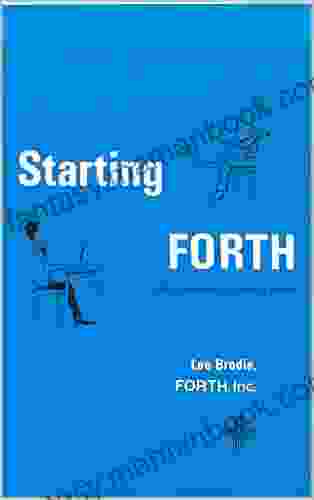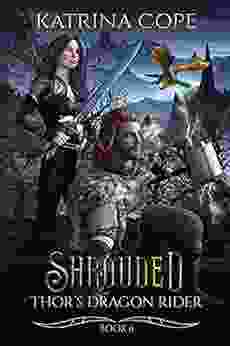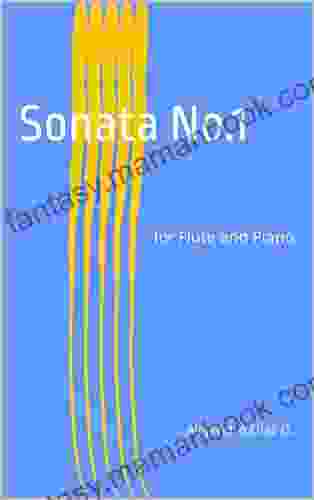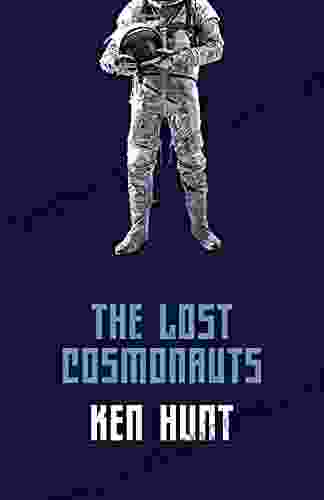Starting Forth

4.8 out of 5
| Language | : | English |
| File size | : | 5236 KB |
| Text-to-Speech | : | Enabled |
| Screen Reader | : | Supported |
| Enhanced typesetting | : | Enabled |
| Word Wise | : | Enabled |
| Print length | : | 288 pages |
| Lending | : | Enabled |
An to the Forth Programming Language and Development Environment for Beginners
Forth is a stack-based, interpreted programming language that has been used for a wide variety of applications, from embedded systems to desktop applications. It is known for its simplicity, efficiency, and extensibility.
This article will provide an to the Forth programming language and development environment. We will cover the basics of the language, including data types, operators, and control flow. We will also show you how to set up a development environment and write your first Forth program.
Setting Up a Development Environment
The first step to learning Forth is to set up a development environment. There are several different Forth implementations available, but we will be using the Gforth implementation in this tutorial.
To install Gforth, visit the Gforth website and download the latest version for your operating system. Once you have installed Gforth, you can open a terminal window and type the following command to start the Forth interpreter:
gforthThis will start the Forth interpreter and display a prompt. You can now enter Forth code at the prompt and press Enter to execute it.
Hello, World!
The traditional first program in any programming language is the "Hello, world!" program. Here is how to write "Hello, world!" in Forth:
. ." Hello, world!\n" crThis program uses the . (dot) operator to print a string to the console, and the cr (carriage return) operator to move the cursor to the beginning of the next line.
Data Types and Operators
Forth has a simple data model. The basic data types are:
- Integer: A 32-bit signed integer.
- Character: An 8-bit character.
- String: A sequence of characters.
- Array: A collection of elements of the same type.
Forth also has a variety of operators that can be used to manipulate data. The most common operators are:
- +: Adds two numbers.
- -: Subtracts two numbers.
- *: Multiplies two numbers.
- /: Divides two numbers.
- =: Compares two numbers for equality.
- !=: Compares two numbers for inequality.
- >: Compares two numbers for greater than.
- : Compares two numbers for less than.
- >=: Compares two numbers for greater than or equal to.
- : Compares two numbers for less than or equal to.
Control Flow
Forth has a variety of control flow statements that can be used to control the flow of execution. The most common control flow statements are:
- if: Executes a block of code if a condition is true.
- else: Executes a block of code if a condition is false.
- while: Executes a block of code while a condition is true.
- repeat: Executes a block of code a specified number of times.
- until: Executes a block of code until a condition is true.
- for: Executes a block of code for each element in a collection.
This article has provided a brief to the Forth programming language and development environment. We have covered the basics of the language, including data types, operators, and control flow. We have also shown you how to set up a development environment and write your first Forth program.
To learn more about Forth, I encourage you to consult the following resources:
- The Forth Language Page
- The Gforth Website
- The Gforth GitHub Repository
I hope this article has been helpful. Happy coding!
4.8 out of 5
| Language | : | English |
| File size | : | 5236 KB |
| Text-to-Speech | : | Enabled |
| Screen Reader | : | Supported |
| Enhanced typesetting | : | Enabled |
| Word Wise | : | Enabled |
| Print length | : | 288 pages |
| Lending | : | Enabled |
Do you want to contribute by writing guest posts on this blog?
Please contact us and send us a resume of previous articles that you have written.
 Top Book
Top Book Novel
Novel Fiction
Fiction Nonfiction
Nonfiction Literature
Literature Paperback
Paperback Hardcover
Hardcover E-book
E-book Audiobook
Audiobook Bestseller
Bestseller Classic
Classic Mystery
Mystery Thriller
Thriller Romance
Romance Fantasy
Fantasy Science Fiction
Science Fiction Biography
Biography Memoir
Memoir Autobiography
Autobiography Poetry
Poetry Drama
Drama Historical Fiction
Historical Fiction Self-help
Self-help Young Adult
Young Adult Childrens Books
Childrens Books Graphic Novel
Graphic Novel Anthology
Anthology Series
Series Encyclopedia
Encyclopedia Reference
Reference Guidebook
Guidebook Textbook
Textbook Workbook
Workbook Journal
Journal Diary
Diary Manuscript
Manuscript Folio
Folio Pulp Fiction
Pulp Fiction Short Stories
Short Stories Fairy Tales
Fairy Tales Fables
Fables Mythology
Mythology Philosophy
Philosophy Religion
Religion Spirituality
Spirituality Essays
Essays Critique
Critique Commentary
Commentary Glossary
Glossary Bibliography
Bibliography Index
Index Table of Contents
Table of Contents Preface
Preface Introduction
Introduction Foreword
Foreword Afterword
Afterword Appendices
Appendices Annotations
Annotations Footnotes
Footnotes Epilogue
Epilogue Prologue
Prologue K J Simpson
K J Simpson Edward T Haslam
Edward T Haslam Glynn Stewart
Glynn Stewart Tetsuya Nomura
Tetsuya Nomura Susan Isaacs
Susan Isaacs Daphne Mcmenemy
Daphne Mcmenemy David Reiss
David Reiss Winifred Aldrich
Winifred Aldrich Anton Chekhov
Anton Chekhov Bhagat Singh
Bhagat Singh L Saha
L Saha Ivy Rose
Ivy Rose Haji Outlaw
Haji Outlaw Brian Culhane
Brian Culhane Robert Zimmermann
Robert Zimmermann Don Keith
Don Keith David M Wight
David M Wight Matt Strain
Matt Strain Moses Yamtal
Moses Yamtal Shel Israel
Shel Israel
Light bulbAdvertise smarter! Our strategic ad space ensures maximum exposure. Reserve your spot today!
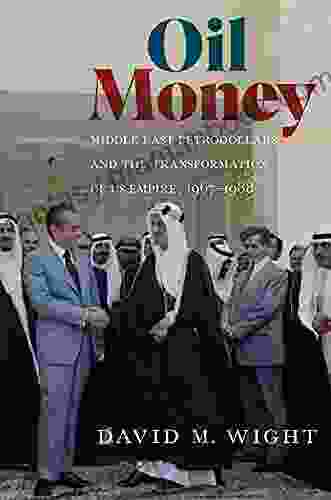
 Ryūnosuke AkutagawaMiddle East Petrodollars and the Transformation of the US Empire, 1967-1988
Ryūnosuke AkutagawaMiddle East Petrodollars and the Transformation of the US Empire, 1967-1988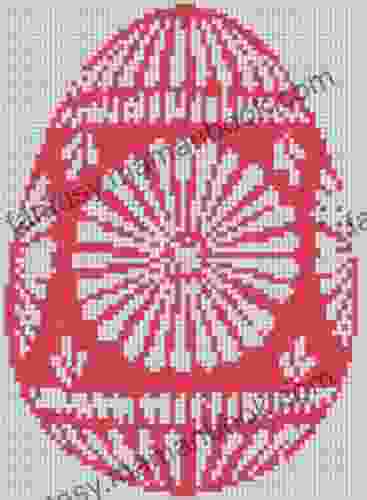
 George Bernard ShawA Timeless Tradition: Embark on the Enchanting Journey of Creating a Red...
George Bernard ShawA Timeless Tradition: Embark on the Enchanting Journey of Creating a Red... Aron CoxFollow ·5.4k
Aron CoxFollow ·5.4k Gabriel HayesFollow ·3.7k
Gabriel HayesFollow ·3.7k John UpdikeFollow ·10k
John UpdikeFollow ·10k Gil TurnerFollow ·3.4k
Gil TurnerFollow ·3.4k Al FosterFollow ·3.1k
Al FosterFollow ·3.1k Clarence MitchellFollow ·16.3k
Clarence MitchellFollow ·16.3k Gilbert CoxFollow ·6.8k
Gilbert CoxFollow ·6.8k Aaron BrooksFollow ·6.3k
Aaron BrooksFollow ·6.3k

 Roland Hayes
Roland HayesFive Unique Eating Plans to Shatter Your Weight Loss...
Weight loss journeys can be a rollercoaster...

 Gustavo Cox
Gustavo CoxThe Small Habits Revolution: How Tiny Changes Can...
Are you ready to...

 Herman Mitchell
Herman MitchellVisit Alook Cool Place In Outer Space Let Explore The...
Welcome to the World Series...
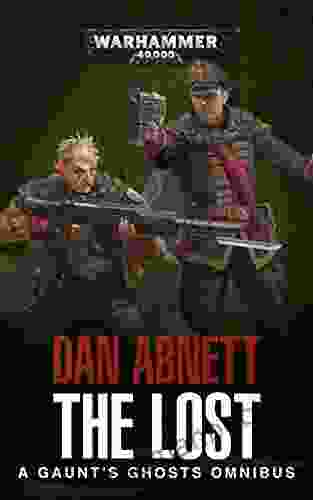
 Hassan Cox
Hassan CoxGaunt's Ghosts Omnibus: A Comprehensive Guide to the Epic...
Prepare to embark on an...
4.8 out of 5
| Language | : | English |
| File size | : | 5236 KB |
| Text-to-Speech | : | Enabled |
| Screen Reader | : | Supported |
| Enhanced typesetting | : | Enabled |
| Word Wise | : | Enabled |
| Print length | : | 288 pages |
| Lending | : | Enabled |


